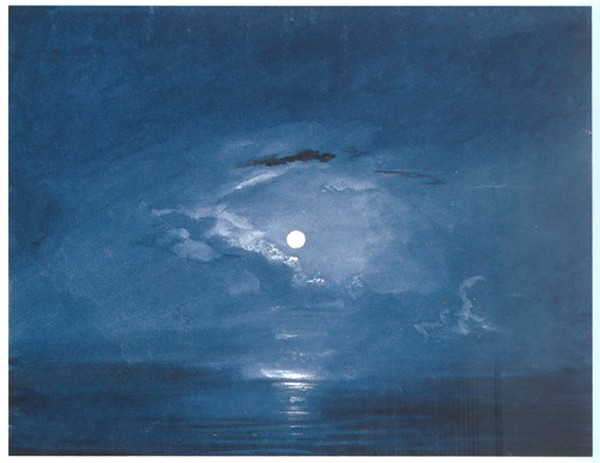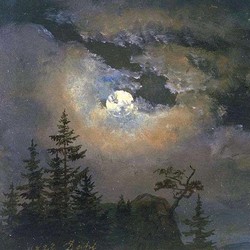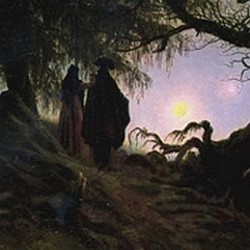
Musical works with choir and soloists are customary in symphonic seasons: symphonies such as Beethoven's Ninth or some by Mahler, masses, oratorios... even operas presented in concert version. But, as so often happens, some works are regularly programmed and some others, really beautiful, are hardly performed. Among these, Rosamunde, D. 797, a work by Franz Schubert that (please allow me some advice) run to listen to it if you haven’t done it yet.
Rosamunde was written as incidental music, that is, music to be performed during a theater play. As A Midsummer Night's Dream, op. 61 by Felix Mendelssohn, for instance; I’m suggesting this Mendelssohn's piece because his music has something to do with Schubert’s, they share their festive spirit and their brilliance. However, Mendelssohn's work is much more appreciated than Schubert's piece at the concert halls, oh well!
A further question is the quality of the theatre play. No doubt that few writers would bear comparison with Shakespeare but, according to Schubert’s contemporaries, Rosamunde, Prinzessin von Zypern, by Helmina von Chélzy (librettist of Euryanthe, Carl Maria von Weber's opera) was pretty bad. It was premiered on December 20th, 1823 and retired from the theatre after two performances. It seems that it was performed the following year in Munich, this time with another incidental music; Later, the work was lost and, apparently, a revised version was found at the end of the last century; I do not know if it has been published or is only for scholars' eyes.
Chélzy's work was a failure, but Schubert’s was well received, and he immediately published his opus 26 including some of the numbers; The rest was lost for decades, but it was recovered eventually so we can listen to the whole work. In addition, Schubert again used the music from the third Entr'acte a few months later, this time in his quartet no. 13, and four years later he went back to the same theme, this time in his Impromptu no. 3.
I am talking about Rosamunde because this week we're listening to one of the best-known fragments, the Romanze, which would be the first orchestral Lied in history, if it weren't for the fact that, as we've seen, it wasn't intended to be a Lied. But Schubert himself wrote a piano accompaniment and the piece became part of the Art Song repertoire as Romanze aus "Rosamunde", D. 797/3b. Rosamunde is, as the title says, the princess of Cyprus; In order to protect her life, his father, before being murdered, asks a couple of shephers to take care of her as their daughter. When she turns eighteen, Rosamunde knows the truth about his origins and claims the throne, which she finally obtains in spite of Fulgentius, the villain in this story. At some point in the play, Rosamunde returns to the place where she grew up; that's when her adoptive mother, Axa, sings this nocturne.
This beautiful song, that we're listening performed by Ilker Arcayürek and Simon Lepper, will be performed by Katharina Konradi and Eric Schneider next Friday in Barcelona; as always, I'm adding here the songs of the programme we've heard so far in Liederabend, just in case you would like to review them.
- Im Abendrot, D. 799
- Alinde, D. 904
- An mein Herz, D. 860
- An die Nachtigall, D. 497
- Strophe aus "Die Götter Griechenlands", D. 677
- Der Zwerg, D. 771
- Verklärung, D. 59
Der Vollmond strahlt auf Bergeshöhn –
Wie hab ich dich vermisst!
Du süsses Herz! es ist so schön,
Wenn treu die Treue küsst.
Was frommt des Maien holde Zier?
Du warst mein Frühlingsstrahl!
Licht meiner Nacht, o lächle mir
Im Tode noch einmal!
Sie trat hinein beim Vollmondschein,
Sie blickte himmelwärts:
„Im Leben fern, im Tode dein!“
Und sanft brach Herz an Herz.
Please follow this link if you need an English translation.

















Comments powered by CComment